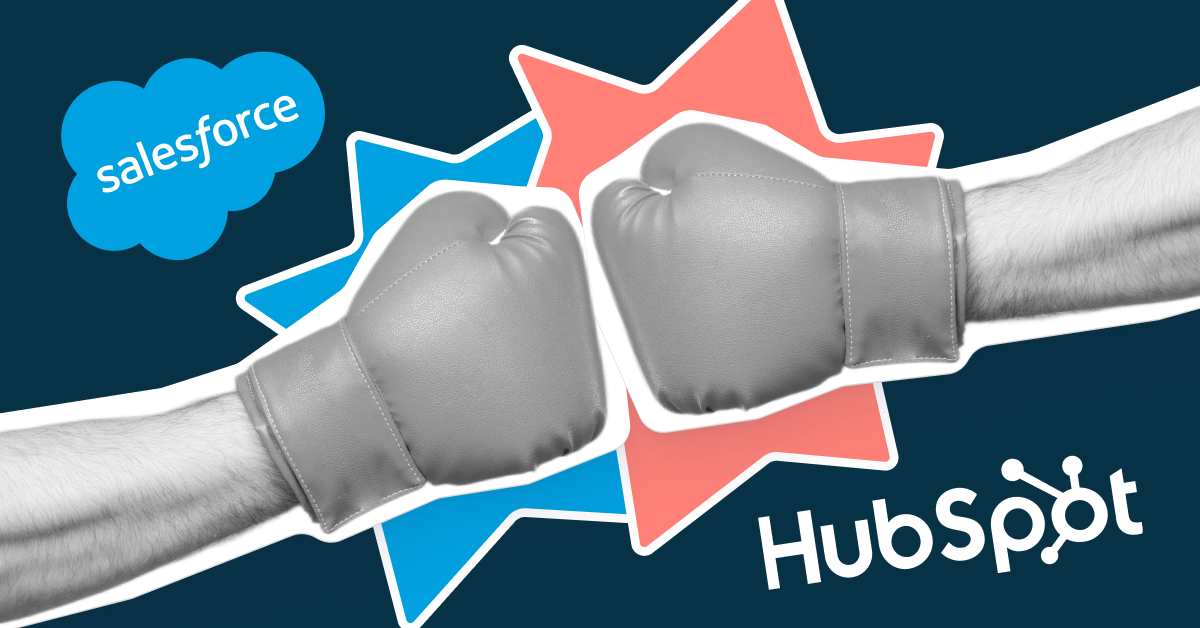Choosing the right customer relationship management (CRM) software is more than just a technical decision.
It's a strategic move that can significantly influence the trajectory of your business.
In the bustling world of CRM platforms, two giants often come to mind:
Salesforce and HubSpot.
Each offers robust features and promises to streamline customer interactions, but how do you decide which one is right for your team?
Let's dive deep into this debate, particularly focusing on why many businesses, perhaps just like yours, are tipping the scales in favor of HubSpot over Salesforce.
How Does Each Platform's Tools Fit Into Your Daily Operations?
Look:
It's not just about the features each platform offers—it's about how these tools fit into your daily operations and long-term business goals.
Sure, both HubSpot and Salesforce offer good CRM tools. (Though we personally favor the HubSpot CRM tools.)
But before making a decision as to which platform and tools are right for you, you need to ask yourself a couple of key questions, such as:
Are you looking for a solution that is user-friendly and doesn't require a tech wizard to manage?
Do you need transparent pricing without the fear of escalating costs as you scale?
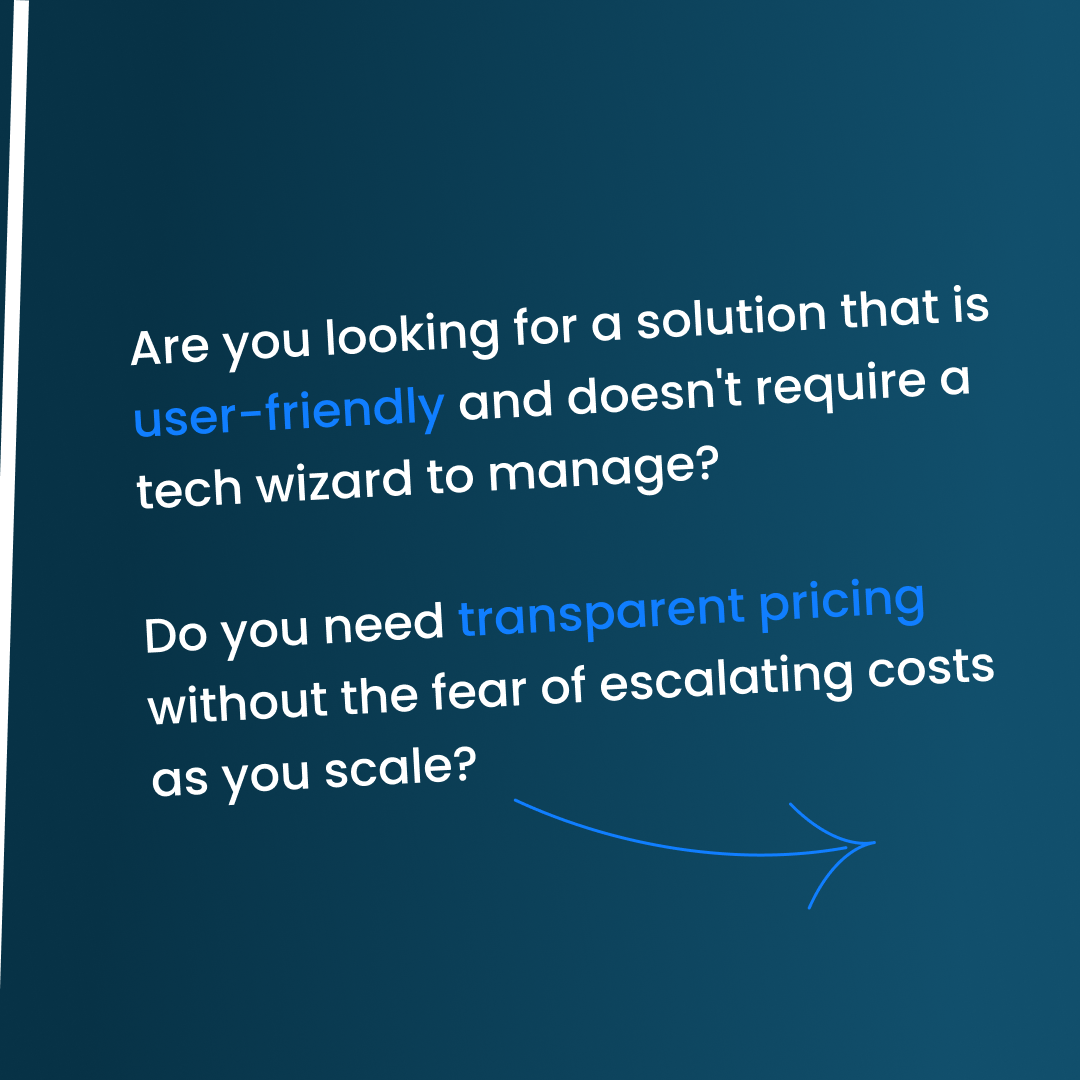
Through this discussion, we'll explore not just the technical capabilities of each platform but also real-world applications and feedback from users who have made the switch or chosen one over the other.
You'll hear stories of real businesses—some possibly very similar to yours—that faced these decisions and learn from their insights and outcomes.
What were their pain points with Salesforce?
How did HubSpot address these challenges differently?
By the end of this blog, you'll have a clearer picture of why HubSpot might just be the better choice for your business, especially if you value straightforward pricing, ease of use, and an integrated ecosystem that grows with your business.
So, whether you're a small startup or a growing enterprise, join us as we unpack the Salesforce vs. HubSpot debate through a lens that's focused on practicality, efficiency, and real user experiences.
HubSpot vs Salesforce Round 1: Cost-Effectiveness and Transparency
When it comes to the bottom line, choosing a CRM isn't just about the list of features.
It's also about cost-effectiveness and transparency in pricing.
Salesforce, while robust, often comes with a complex and opaque pricing structure that can leave businesses grappling with unexpected costs.
For instance, we've spoken to a company who struggled with Salesforce's pricing.
They told us that an agency had quoted them something which at first sounded reasonable for a Salesforce implementation...
But here's the thing:
It soon spiraled into an astronomical figure nearing $280,000—an amount far beyond what they had anticipated or budgeted for.
Of course, this wasn't Salesforce charging them this directly.
It was an agency, just like we're a HubSpot agency that helps businesses migrate to HubSpot (among a host of other things).
But nevertheless, this example highlights a common pain point among Salesforce users:
The hidden costs.
Salesforce can appear economical at first glance, but the addition of necessary customizations, integrations, and scaling often leads to price escalations that aren't always clear upfront.
This lack of transparency can be a major hurdle for businesses trying to budget for the future.
And it's why we're not massive fans of the Salesforce pricing model.
Why HubSpot Stands Out
On the other hand, HubSpot stands out for its straightforward and transparent pricing model.
HubSpot's structure is designed to grow with your business, meaning you pay for what you need when you need it, without the fear of hidden fees.
We often hear from clients how HubSpot's pricing transparency is a breath of fresh air.
They appreciate knowing exactly what the service will cost, allowing for better financial planning and less risk of unexpected expenses.
Moreover, HubSpot users often cite the ease of understanding what each tier of service offers and the additional costs associated with scaling up.
This clarity in pricing is not just about avoiding surprises, it's also about empowering businesses to make informed decisions without needing to navigate a labyrinth of potential fees.
In summary, HubSpot provides a compelling alternative to Salesforce when it comes to cost-effectiveness and transparency.
The straightforward pricing and clear terms not only help businesses manage their budgets more effectively but also reduce the anxiety associated with escalating costs, which is often reported by Salesforce users.
This approach to pricing, coupled with the platform's comprehensive feature set, makes HubSpot an attractive option for businesses looking to maximize their CRM investment without any hidden surprises.
HubSpot vs Salesforce Round 2: User Experience and Operational Efficiency
When evaluating CRM platforms, user experience stands as a critical factor, particularly because it directly influences adoption rates and operational efficiency.
Let us shed light on why HubSpot's user-friendly interface is often preferred over the more complex Salesforce system.
First of all, we find that HubSpot's intuitive design leads to quicker adoption.
Salesforce, while powerful, often requires extensive training and ongoing support to navigate its intricate features, which could be a significant drain on resources.
HubSpot’s design philosophy centers on usability
HubSpot aims to make CRM tasks as straightforward as possible.
This is evident in its clean layout, where common tasks are accessible within a few clicks, and information is presented clearly without overwhelming users.
This ease of use translates into reduced training time for staff.
New users can get up to speed quickly, allowing them to focus more on using the platform to enhance customer relationships rather than struggling with the software itself.
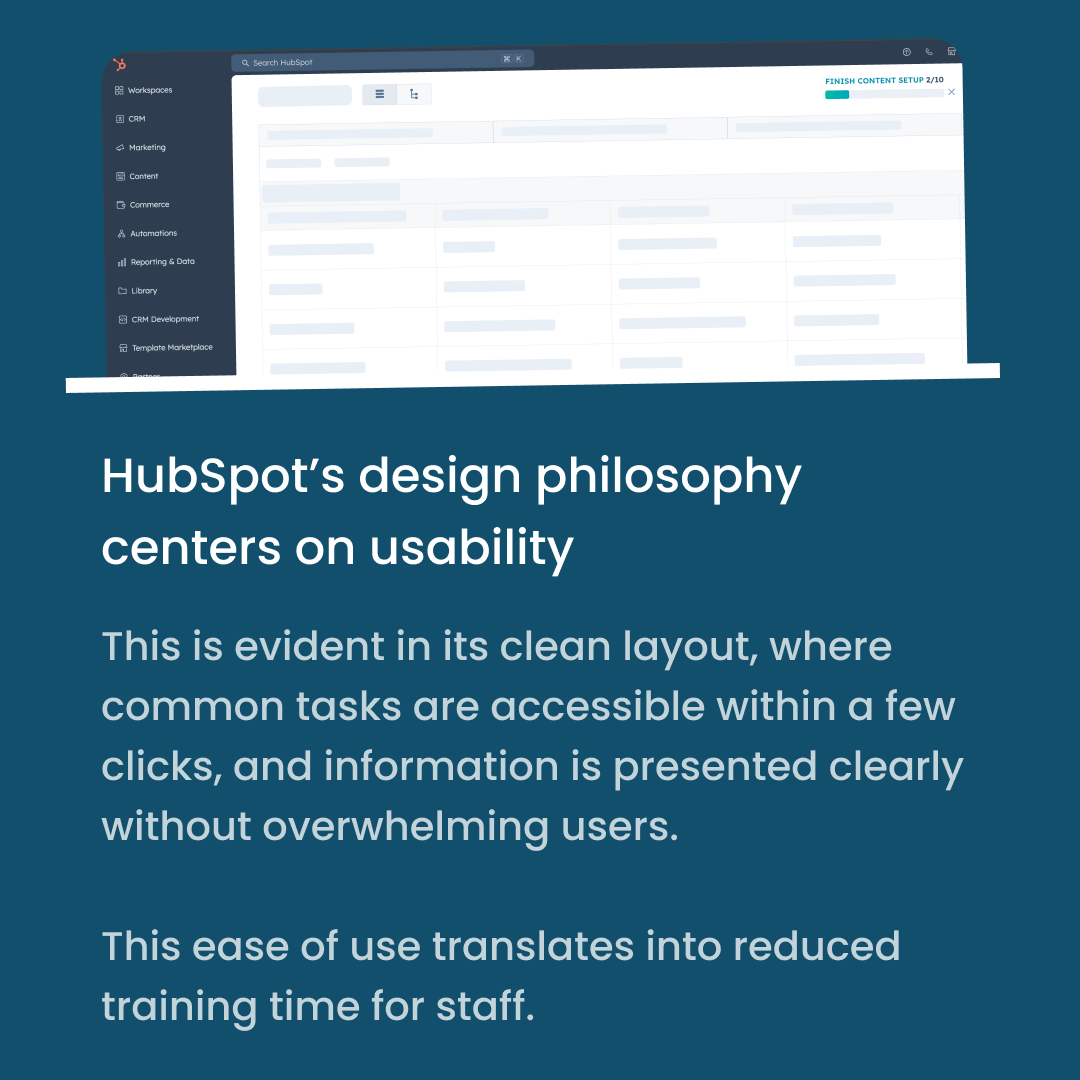
Get this:
A company we spoke to transitioned to HubSpot and noted a drastic reduction in training time from several weeks with Salesforce to just a few days with HubSpot.
Additionally...
The ease of use offered by HubSpot significantly boosts operational efficiency
The same company experienced a noteworthy decrease in the time their sales team spent on administrative tasks.
See, prior to using HubSpot, the sales team would spend a large portion of their day navigating Salesforce's complex interface, trying to log activities, update records, and generate reports.
But after switching to HubSpot, these activities became much more streamlined, freeing up salespeople to spend more time engaging with customers and closing deals.
They reported an approximate 80% reduction in the time spent on CRM-related tasks
This had a direct positive impact on their sales outcomes.
This significant decrease in operational time not only improved the productivity of the sales team but also enhanced their job satisfaction.
Employees were less frustrated with cumbersome processes and more engaged in their primary roles, leading to better performance and reduced turnover.
Overall, HubSpot’s user-friendly interface and streamlined processes not only ease the burden of CRM management but also empower teams to perform at their best.
By minimizing the complexity and time associated with common CRM tasks, HubSpot enables businesses to maximize efficiency, improve employee satisfaction, and ultimately drive greater success.
HubSpot vs Salesforce Round 3: Integration and Ecosystem
One of the key advantages of using HubSpot over Salesforce is its superior integration capabilities, which create a seamless ecosystem for managing customer relationships.
Businesses today rely heavily on a multitude of tools and platforms, and the ability of a CRM to integrate smoothly with other software is crucial for operational success.
HubSpot excels in this area by providing a unified platform where all tools—sales, marketing, service—work cohesively together.
A compelling example of HubSpot's integration capabilities comes from a business that initially struggled with Salesforce's segmented approach.
They found that while Salesforce claimed comprehensive integration capabilities, the reality was a fragmented experience where data silos were common, and additional third-party tools were often necessary to bridge gaps.
This not only increased costs but also complicated the data flow.
Better Data Handling
In contrast, after transitioning to HubSpot, the same business experienced a notable improvement in data handling and workflow management.
HubSpot’s all-in-one platform meant that data from various departments was instantly accessible, eliminating the need for multiple integrations that could introduce complications.
This integration extends beyond just linking different hubs within HubSpot.
The platform supports direct integrations with a wide array of third-party applications, from email marketing tools to customer service software, all without requiring the extensive setup that was previously necessary with Salesforce.
HubSpot's API
Moreover, HubSpot’s API (Application Programming Interface) is robust yet user-friendly, allowing even those with minimal technical expertise to customize integrations as needed.
This capability is particularly beneficial for small to mid-sized businesses that do not have large IT departments but still need a powerful tool that can adapt to their unique requirements.
The streamlined integration ecosystem in HubSpot not only enhances operational efficiency but also ensures that all team members have access to up-to-date and complete customer information.
This is vital for providing a consistent and personalized customer experience, which is at the heart of successful modern marketing and sales strategies.
Thus, the ease of integration and the cohesive ecosystem offered by HubSpot make it an attractive option for businesses looking to enhance their operational efficiency and data management without the complexities and additional costs associated with Salesforce.
This approach not only simplifies the technical aspects of CRM management but also amplifies the effectiveness of customer relationship efforts across all levels of the organization.
HubSpot vs Salesforce Round 4: Customization and Scalability
Customization and scalability are critical components of any CRM system, allowing businesses to adapt and evolve their tools as their needs grow and change.
When looking to compare HubSpot to Salesforce, HubSpot distinguishes itself in this domain by providing highly customizable options that do not require extensive IT support or deep technical knowledge, which stands in contrast to the experiences many users have with Salesforce.
Salesforce, while known for its powerful and extensive customization capabilities, often requires a dedicated administrator or developer to manage these customizations.
While this may not be a problem for bigger businesses with large sales teams, for instance, this could introduce significant overhead for small to medium-sized enterprises that might not have the resources to hire specialized personnel.
Challenges with Salesforce due to Complex Customization Requirements
A notable example involves a business that faced ongoing challenges with Salesforce due to its complex customization requirements.
The company needed to constantly adjust its CRM to align with evolving business strategies, a task that became both costly and time-consuming due to the need for specialized Salesforce skills.
Conversely, HubSpot is designed with the end-user in mind, simplifying the customization process.
Users can tailor workflows, dashboards, and reports directly from the user interface without any coding expertise.
This ease of customization ensures that businesses can quickly adapt their CRM environment to meet immediate needs without additional costs or delays.
For example, a company was able to streamline its lead management and customer service processes by customizing HubSpot to automatically route inquiries and track interactions, significantly improving response times and customer satisfaction.
HubSpot is Designed to Grow Seamlessly With a Business' Needs
Furthermore, HubSpot's scalability is another strong point, designed to grow seamlessly with a business.
From startups to large enterprises, HubSpot offers various tiers and add-ons that allow companies to expand their CRM capabilities as their customer base grows and their marketing and sales strategies become more complex.
This scalability is enhanced by HubSpot’s intuitive design, which ensures that even as new features and functions are added, the user experience remains straightforward and manageable.
These customization and scalability features have proven especially beneficial for businesses looking to maintain agility and responsiveness in dynamic market conditions.
By allowing easy adjustments and expansions, HubSpot enables companies to stay competitive and responsive without the need for costly upgrades or specialized staff.
This flexibility not only saves time and money but also allows businesses to remain focused on their core operations, enhancing overall efficiency and effectiveness.
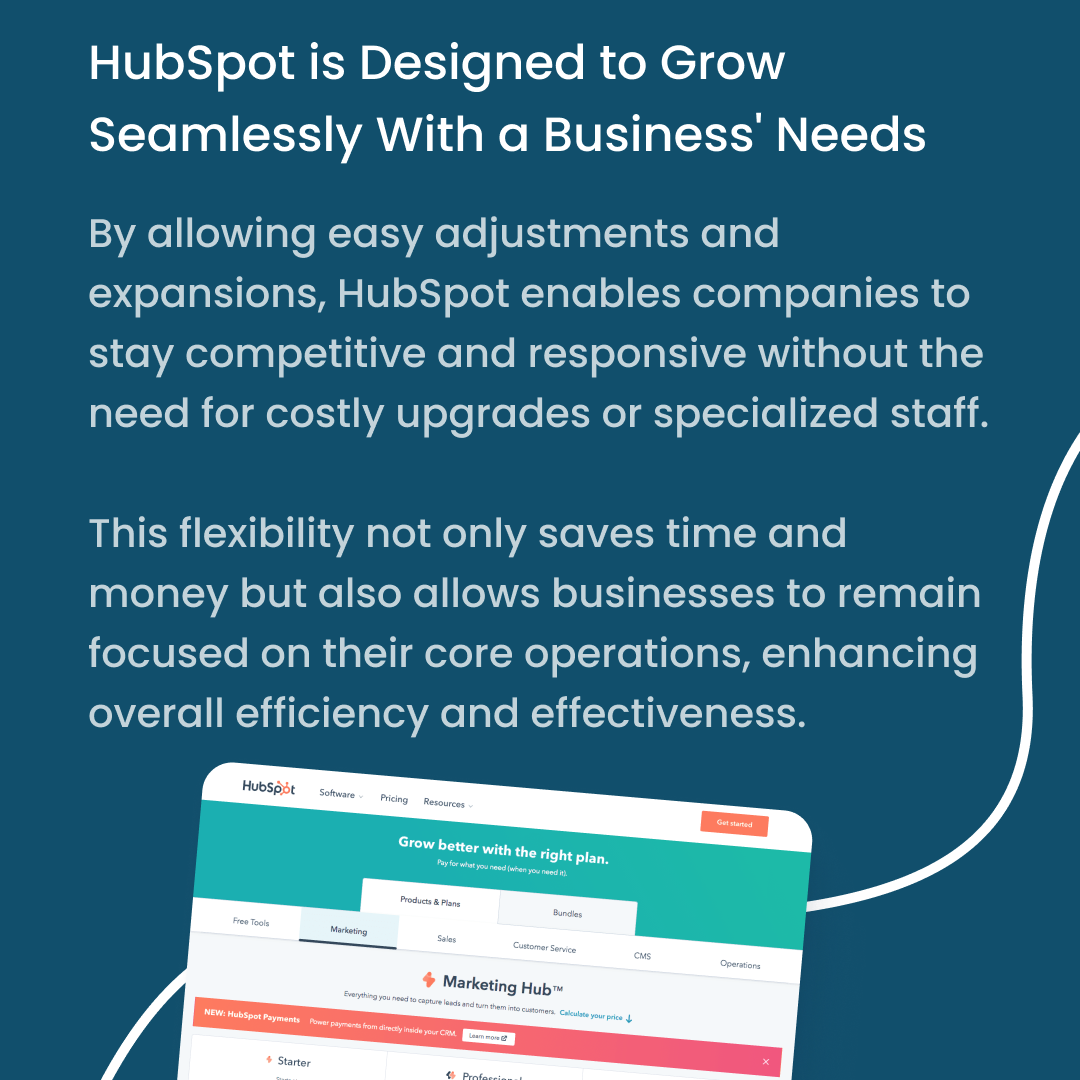
HubSpot vs Salesforce Round 5: Support and Community
When it comes to choosing a CRM, the level of support and the vibrancy of the community surrounding the platform can be just as important as the features it offers.
This is where HubSpot particularly shines, boasting a supportive community and a responsive customer service team that significantly enhance the user experience.
When it comes to customer support, it's not just about having access to help, but about the quality and speed of the support offered.
Benefit from HubSpot's Proactive Customer Service Team
HubSpot has made a name for itself with its proactive and knowledgeable customer service team.
Whether it's a minor query about a feature or a complex problem that needs solving, users frequently praise the swift and effective assistance they receive.
This contrasts sharply with experiences some users we've spoken to have had with Salesforce, where the support could sometimes feel less accessible and slower, partly due to the sheer size and complexity of the platform.
HubSpot Has Cultivated a Fantastic Online Community
It's not just the official support that makes HubSpot stand out...
It’s also the community that uses it.
HubSpot has cultivated a robust online community, where users from around the world share tips, tricks, and best practices.
This community acts as an extended support network where users can learn from each other, find solutions to common problems, and share strategies for making the most of the platform.
For someone new to HubSpot or even CRM systems in general, this community can be an invaluable resource, making the learning curve much less daunting.
Integrate HubSpot Into Your Operations
Take, for example, a small business owner who was new to using any form of CRM.
After adopting HubSpot, they were not only able to integrate it smoothly into their operations but also optimize its use by engaging with the HubSpot community.
Through forums and discussion boards, they received personalized advice that helped them tailor HubSpot to their specific needs, something that might have required expensive consultancy if they were using a platform like Salesforce.
Learn Via The HubSpot Academy
On top of that, HubSpot’s commitment to education extends to its HubSpot Academy, which offers free online training courses and certifications.
These resources empower users to not only improve their proficiency with HubSpot’s tools but also enhance their overall marketing, sales, and service skills.
This educational support is something that users have found particularly helpful, as it helps them maximize their investment in the CRM not just by using it correctly, but by using it strategically.
The combination of responsive customer support, a dynamic user community, and extensive educational resources creates a supportive ecosystem that can significantly enhance the user experience.
For businesses investing in a CRM, this level of support can be the difference between merely using a tool and leveraging it to its fullest potential to grow and succeed.
This is why many users transitioning from Salesforce to HubSpot cite the support and community as key factors in their decision, noting that these aspects of HubSpot make it not just a tool, but a partner in their business growth.
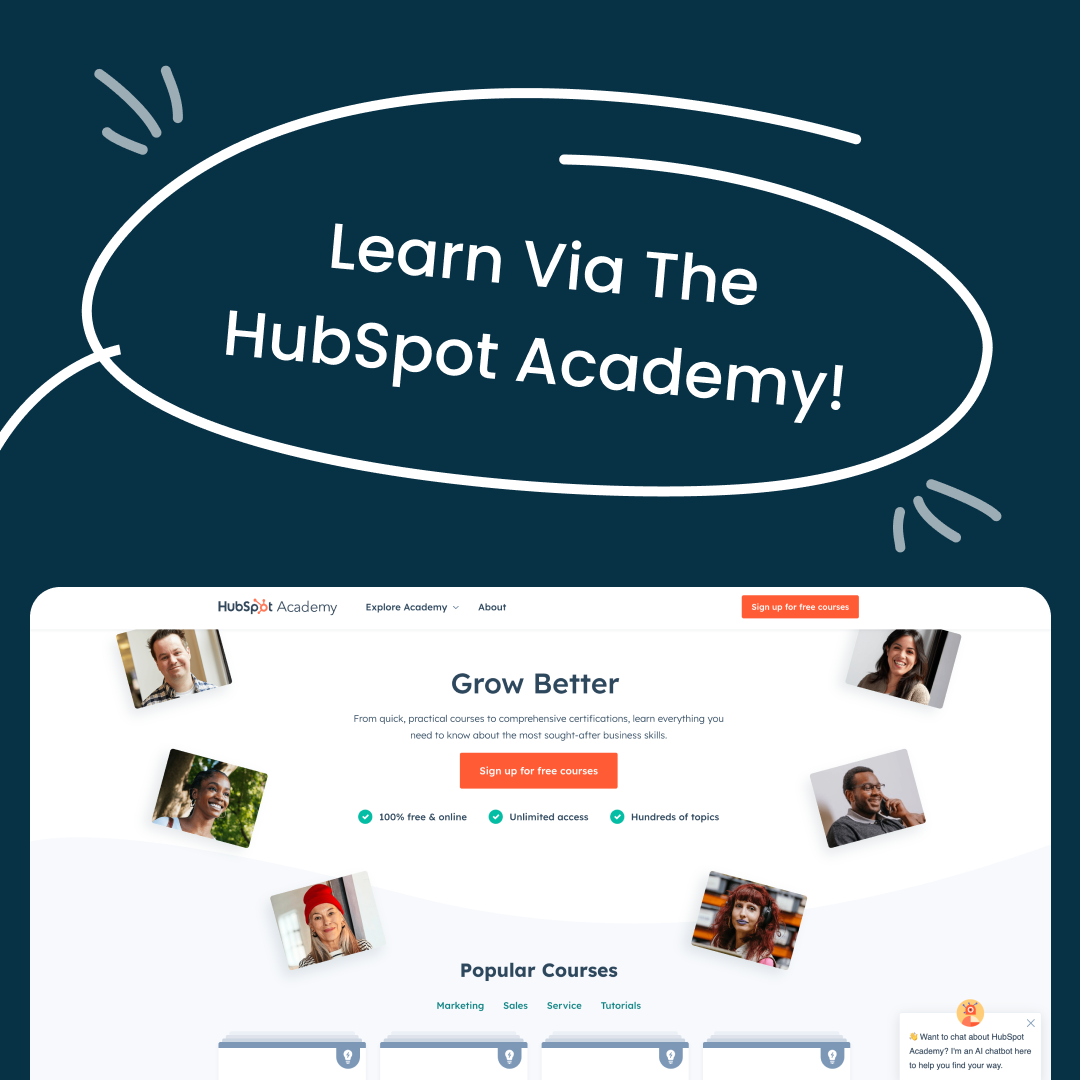
Leveraging CRM for Enhanced Business Performance
As businesses navigate the complexities of customer relationship management, choosing the right CRM platform can significantly influence the efficiency and effectiveness of their sales efforts.
Both Salesforce and HubSpot offer robust solutions, but they do so with different strengths that cater to diverse business needs.
Where Salesforce Shines
Salesforce shines particularly in its advanced analytics features, which provide businesses with actionable insights critical for strategic decision-making.
These insights are derived from deep data analysis capabilities, allowing companies to refine their marketing strategies and optimize sales processes.
Salesforce's strength lies in its comprehensive approach to data, which enables users to track and analyze customer interactions at every touchpoint, enhancing the overall customer journey.
Where HubSpot Shines
However, when it comes to workflow enhancements, HubSpot stands out with its intuitive user interface and automation tools that streamline daily tasks and communications.
HubSpot’s focus on user experience simplifies the implementation of complex processes, making it easier for teams to adopt and integrate CRM practices into their daily operations.
This ease of use contributes significantly to improving team productivity by reducing the time spent on manual tasks, allowing sales teams to focus more on engaging with customers and closing deals.
As well as that, HubSpot’s integration capabilities ensure that all tools work cohesively, providing a seamless flow of information across sales, marketing, and customer service departments.
This integration fosters a unified approach to customer management, where data silos are eliminated, and teams can access a holistic view of customer interactions.
Such integration is vital for creating a consistent and personalized customer experience, which is often the key to building lasting customer relationships.
The truth is, both platforms offer significant advantages, but the choice often comes down to the specific needs of the business.
For companies looking for deep analytics and comprehensive data capabilities, Salesforce provides a powerful toolset designed for granular data analysis and management.
Conversely, businesses aiming to enhance their operational workflows and improve overall user adoption may find HubSpot’s streamlined interface and integration capabilities more aligned with their needs.
In conclusion, whether prioritizing detailed analytics or seeking to enhance workflows and user experience, the decision between Salesforce and HubSpot should be guided by the specific goals and strategies of the business.
Both platforms have the potential to transform sales efforts through powerful insights and efficient process management, ultimately driving business growth and customer satisfaction.
Final Thoughts
As we conclude our exploration of CRM platforms, the pivotal role of sales analytics cannot be overstated in shaping the strategies of sales and marketing teams.
Both HubSpot and Salesforce offer powerful tools to harness the potential of these analytics, enabling businesses to tailor their approaches to meet and exceed customer expectations.
The HubSpot Marketing Hub stands out particularly for its alignment with inbound marketing principles.
This platform facilitates a seamless integration of sales analytics with marketing strategies, ensuring that every interaction with potential and existing customers is informed by data-driven insights.
The HubSpot Marketing Hub excels in pulling together various threads of data into a cohesive narrative that not only tracks but also predicts customer behavior and preferences.
This capability enables marketing teams to craft campaigns that are not only persuasive but also highly personalized, enhancing the efficacy of their inbound marketing efforts.
Synergy between sales and marketing
The synergy between sales and marketing teams is crucial for the successful implementation of any CRM strategy.
By leveraging the comprehensive analytics provided by these platforms, teams can ensure that their efforts are not in silos but are part of a unified strategy aimed at fostering customer relationships and driving sales.
The real-time insights generated by these tools allow for quick adjustments to tactics, ensuring that both sales and marketing teams can respond effectively to the dynamic needs of the market.
In selecting a CRM platform, it is essential for businesses to consider how well these tools integrate with their existing processes and how they enhance the capabilities of their sales and marketing teams.
Whether through Salesforce's robust analytics features or HubSpot's integrated Marketing Hub, the right CRM system should empower businesses to execute a cohesive and adaptive strategy that drives growth through effective inbound marketing and meticulous data analysis.
Ultimately, as we've previously said, the choice between HubSpot and Salesforce will depend on specific business needs—whether the priority is on deep data analytics or on enhancing inbound marketing efforts with an integrated approach.
Regardless, the aim is clear: to leverage these sophisticated tools to build stronger, more informed connections with customers, thereby fueling business success.
Though its fair to say, we're very much Team HubSpot!
